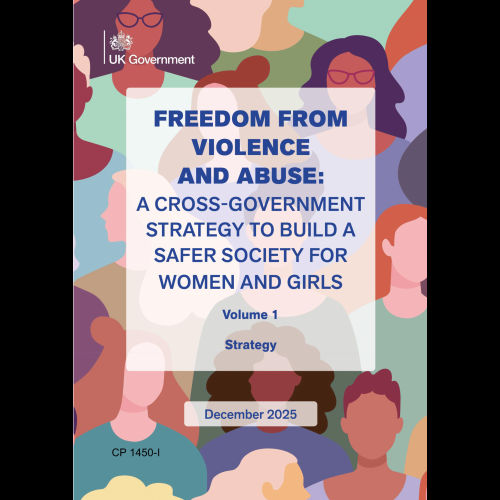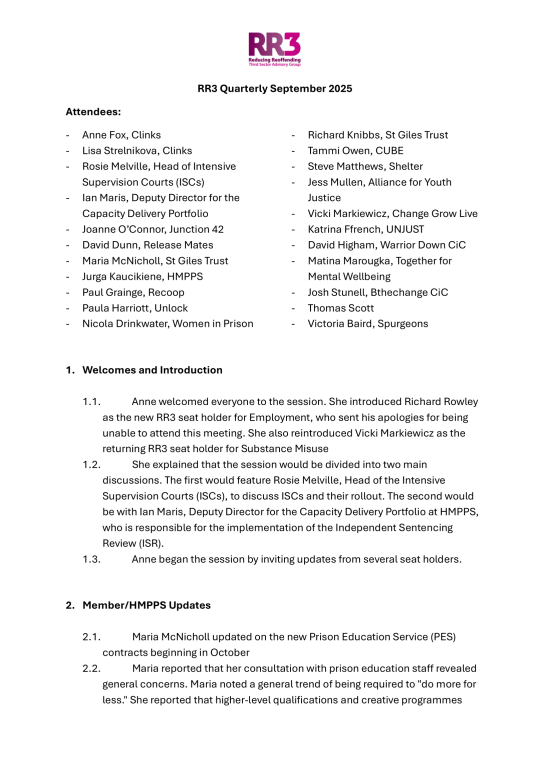In my final weeks of working at Clinks as Development Officer in the South West, I am reflecting on some of the changes I have seen over nearly seven years supporting the criminal justice voluntary sector in this region. We have seen the introduction of Transforming Rehabilitation, radically changing probation services, and are now in the throes of its revamp (see Jess Mullen’s blog for the latest on this).
Major cuts in funding to, and restructures of many statutory services have seen a hunkering down and more inward focus from many agencies, including probation and prisons. However, it seems to me that we are thankfully coming out of that era now as although spending cuts continue, some agencies are recognising that they need strong partnerships and better co-ordination more than ever. In particular, there is welcome explicit recognition in the probation review proposals of the need for greater partnership working.
One of the key positive opportunities I can see for the South West is the recognition of the need for better co-ordination at the regional level, hopefully bringing some power a little closer than Westminster and helping to join up the many layers and varieties of networks, boards and commissioning processes in the region. It’s proposed that the geographic footprints of probation services will be changed so that the Community Rehabilitation Companies (CRCs) and National Probation Service will in future cover the same area - the ‘old’ South West region (as Devon, Dorset & Cornwall and Bristol, Gloucestershire, Somerset Wiltshire CRCs are combined – if it does nothing else this will reduce the number of acronyms we need to remember!). A new ‘regional authority’ would be created within Her Majesty’s Prison and Probation Service (HMPPS), which would have its own small regional commissioning budget. The Police and Crime Commissioners are establishing a new regional Reducing Reoffending Board which has its first meeting in February, and they are keen for the voluntary sector to have meaningful engagement and communication channels with this board.
At the local level, several of the Police and Crime Commissioners (PCCs) are leading the way in facilitating voluntary sector engagement with criminal justice services, as they recognise the critical value of this sector to working with people in the system. Devon & Cornwall Local Criminal Justice Board has recently introduced an agreement with the voluntary sector. It sets out how voluntary organisations will be represented on its boards and sub-groups. Avon & Somerset Reducing Reoffending Board has just held the first event for its reference group and explored how to support the voluntary sector to make the most of upcoming commissioning opportunities.
Another very positive change I have seen is the increasing recognition within the voluntary sector of the importance of coproduction and service user involvement. Clinks’ State of the sector surveys have seen a steady increase in the number of organisations involving service users in various ways, including on their boards.
There remains a massive challenge in tackling inequalities within the criminal justice system (and beyond). This can be particularly daunting in some parts of our region because of the relatively small size of minority communities, particularly in rural areas. It’s worth remembering that racial disproportionality is usually worse in areas where the population is less diverse, so it is more important, not less, for our sector to make tackling inequality a priority. Sadly, during my time at Clinks I have seen the closure of several black, Asian and minority ethnic (BAME) and other equalities organisations in the region. For those of us that work in non-BAME/specialist voluntary organisations, it is so important that we support and work in partnership with specialist BAME organisations. Last year saw the much needed Lammy Review which shone a spotlight on racial disproportionality within the criminal justice system. However, its focus was more on national policy than local policy, with few specific recommendations for actions at local level.
Perhaps because of cuts to public services, there is increasing understanding both in statutory and voluntary sectors of the links between different issues. Clinks has been a member of the Making Every Adult Matter (MEAM) coalition since 2008. Its ambitions to join up the gaps between substance misuse, criminal justice, homelessness and mental health services are now becoming more mainstream. It has been exciting to be part of the development of this work at the local level in Exeter, Cornwall, Plymouth and Bristol. If you haven’t heard about Plymouth’s inspiring work integrating commissioning and services for people with complex lives and using an alliance contracting model, it is well worth taking a look at this presentation.
Though I’m sad to be leaving Clinks I am excited to be moving on to work for a Clinks member organisation. I will be managing criminal justice services at The Women’s Centre Cornwall. I look forward to continuing to work with some of the inspiring and dedicated people I have met at Clinks in the future. Clinks is very much hoping to continue development work in the South West and is exploring options for funding. To discuss Clinks’ future work in the South West, contact Development Manager Angela Lucas on angela.lucas@clinks.org.
To keep in touch my new email is Isabel.livingstone@womenscentrecornwall.org.uk
What's new
Blogs
Violence Against Women and Girls (VAWG) Strategy Blog
Publications
Latest on X
The role is for a leader from an organisation focused on racially minoritised people, with expertise in service delivery, policy, advocacy, or related areas in criminal justice. Racial disparities are present at every CJS stage. This role ensures these voices are central in shaping policy to help address and eradicate them. Apply by Mon 18 Nov, 10am. More info: https://www.clinks.org/voluntary-community-sector/vacancies/15566 #CriminalJustice #RR3 #RacialEquity

